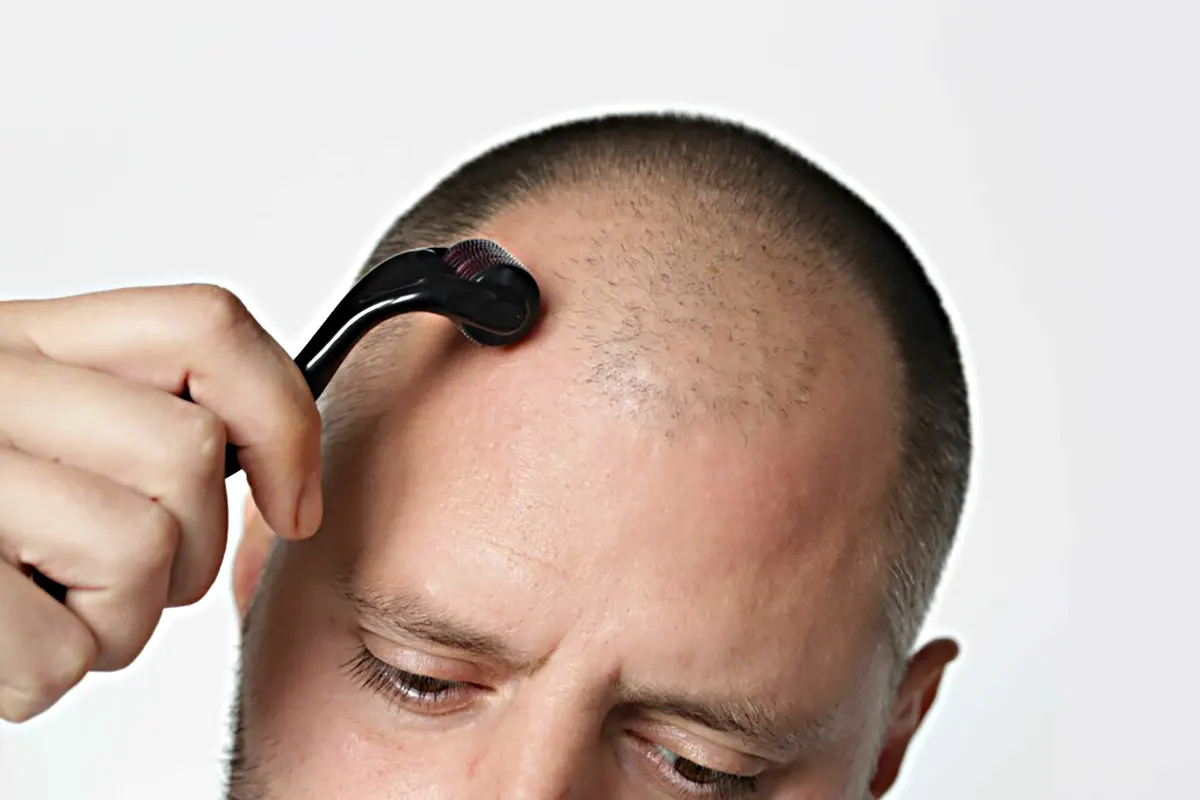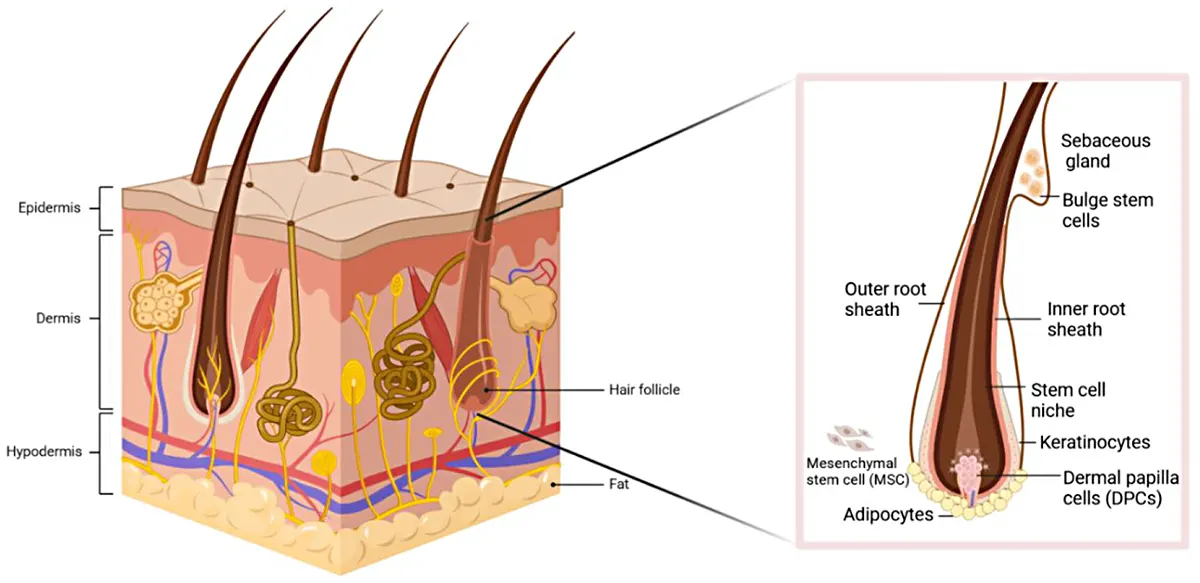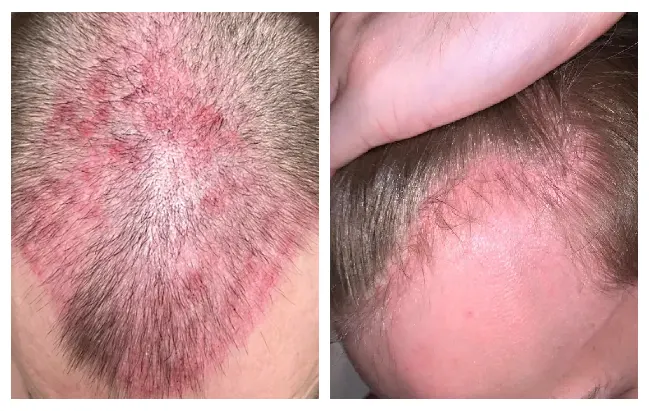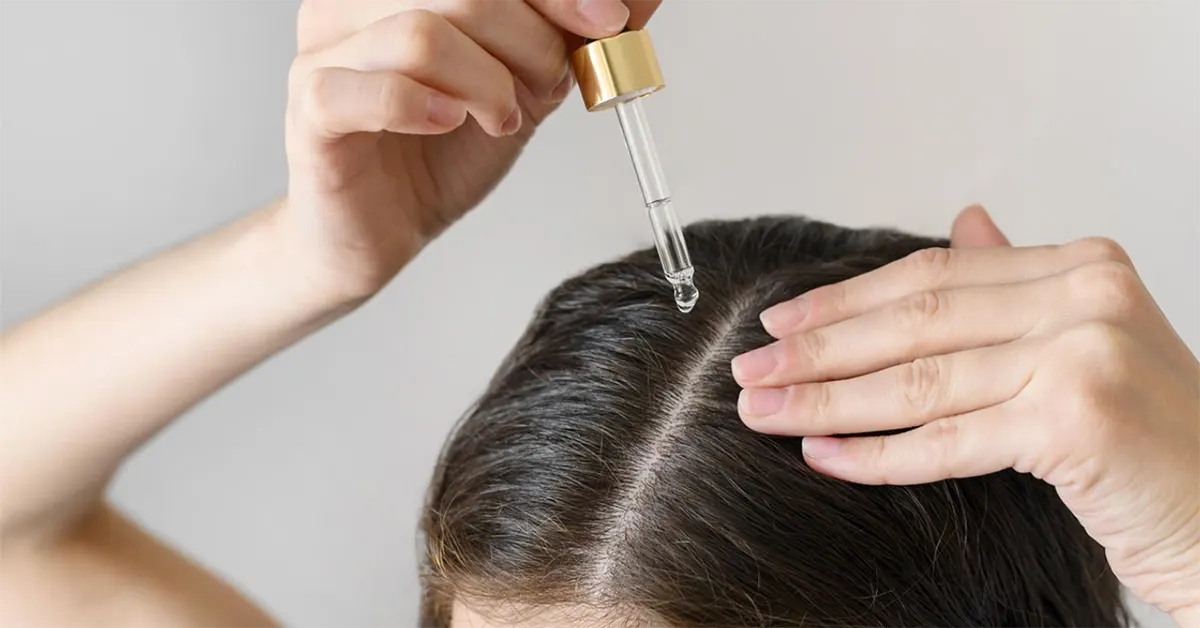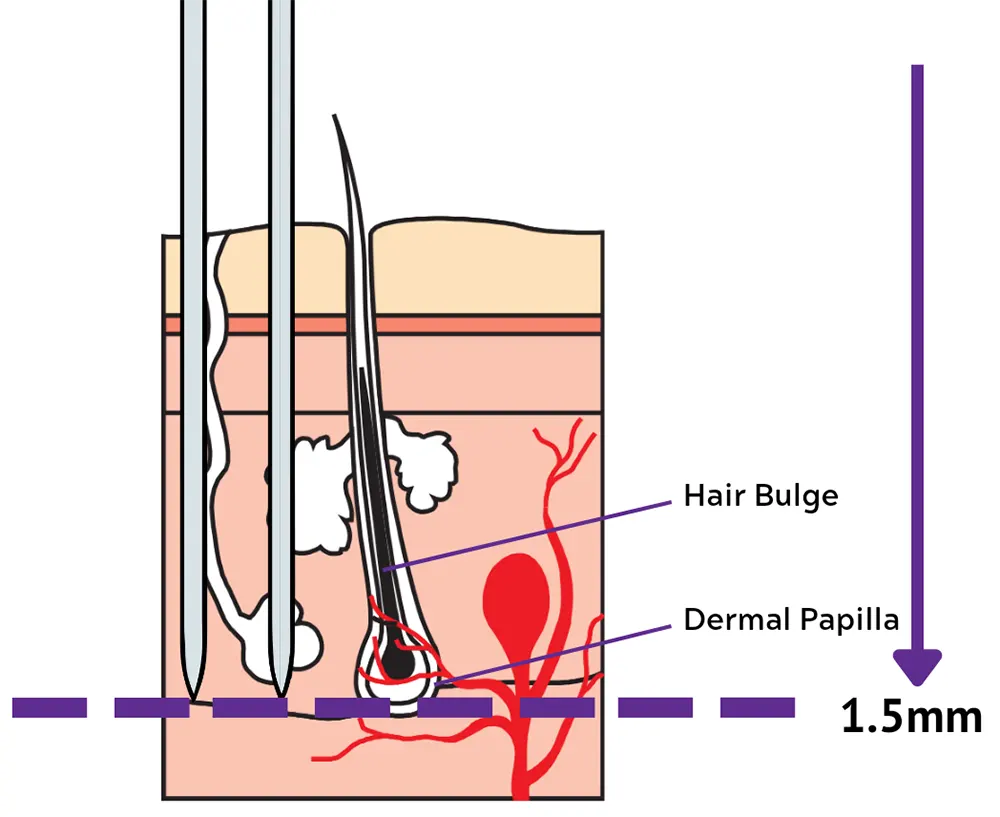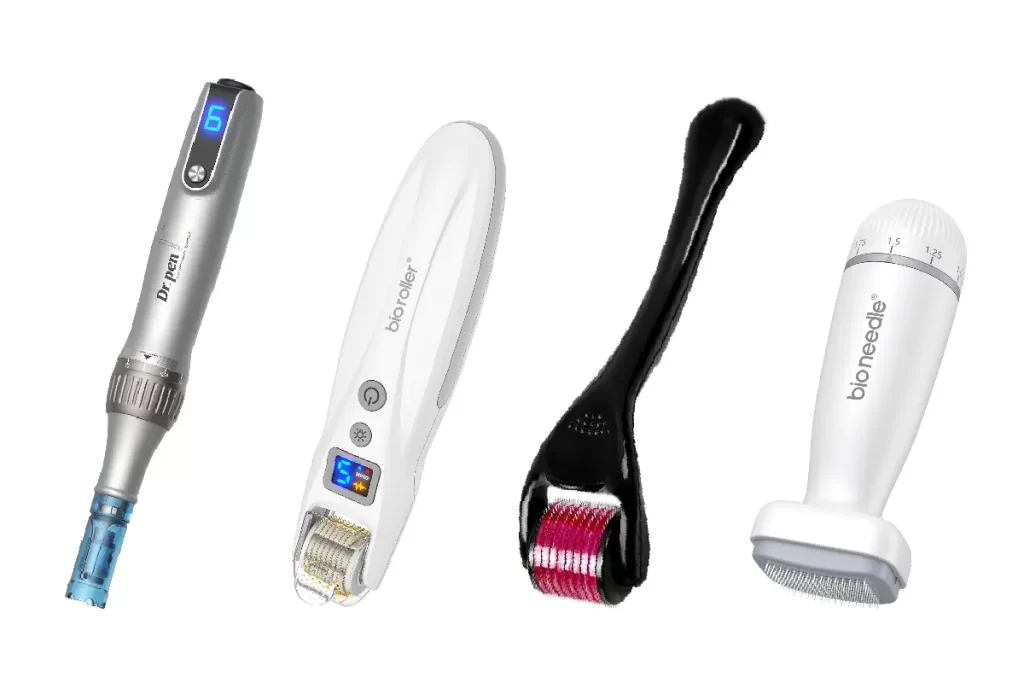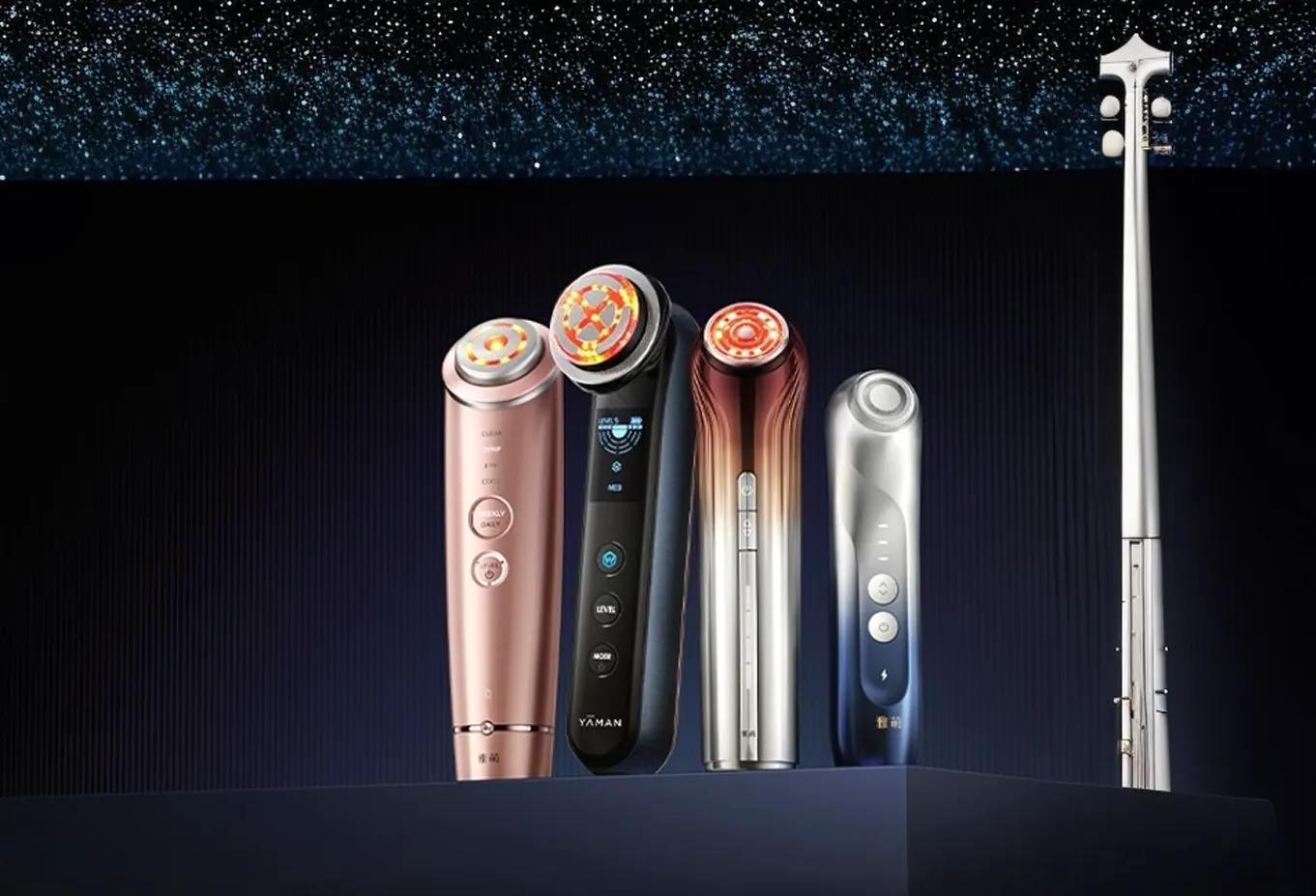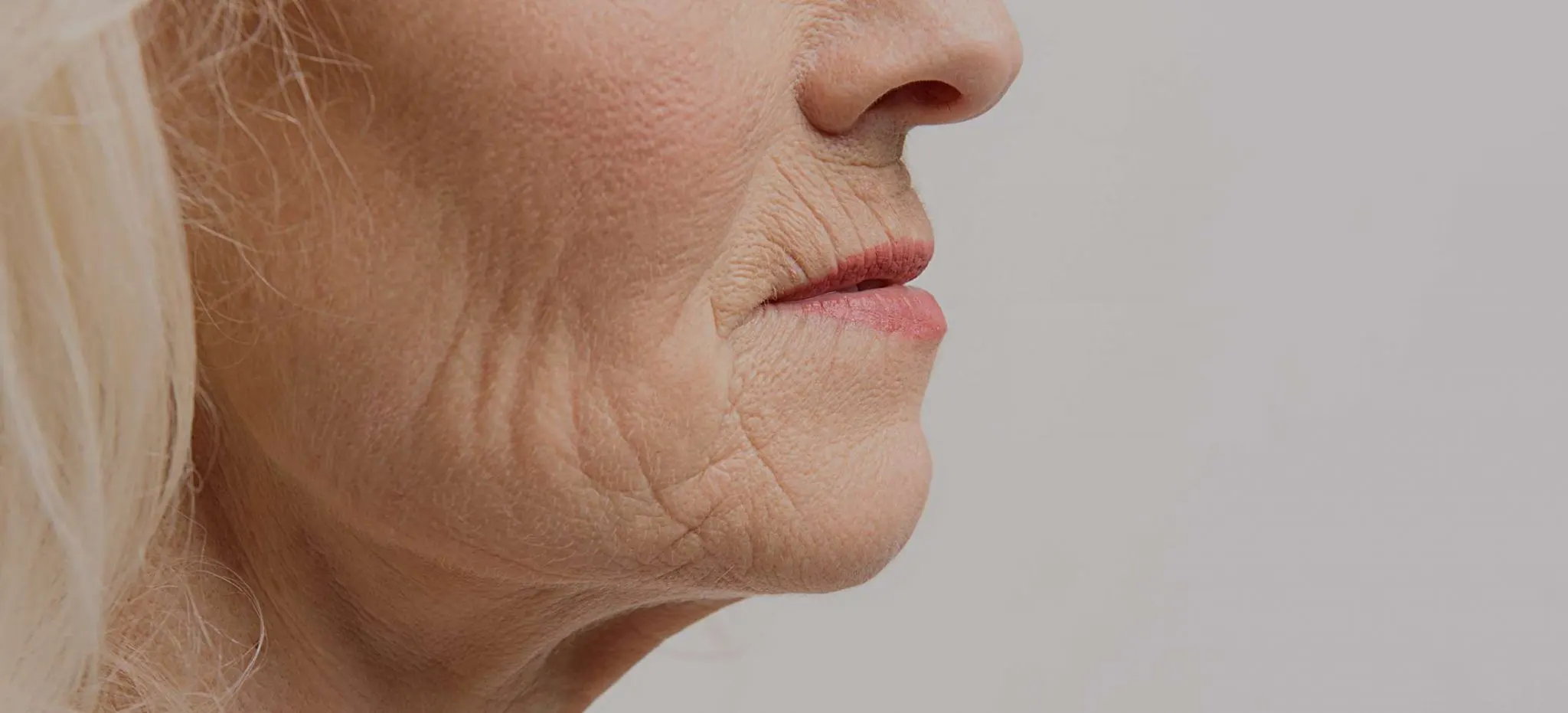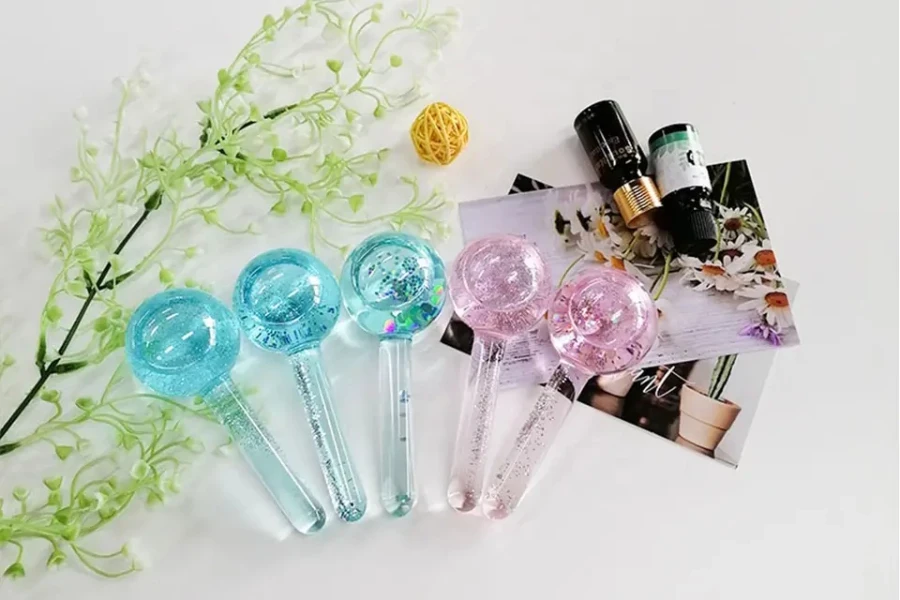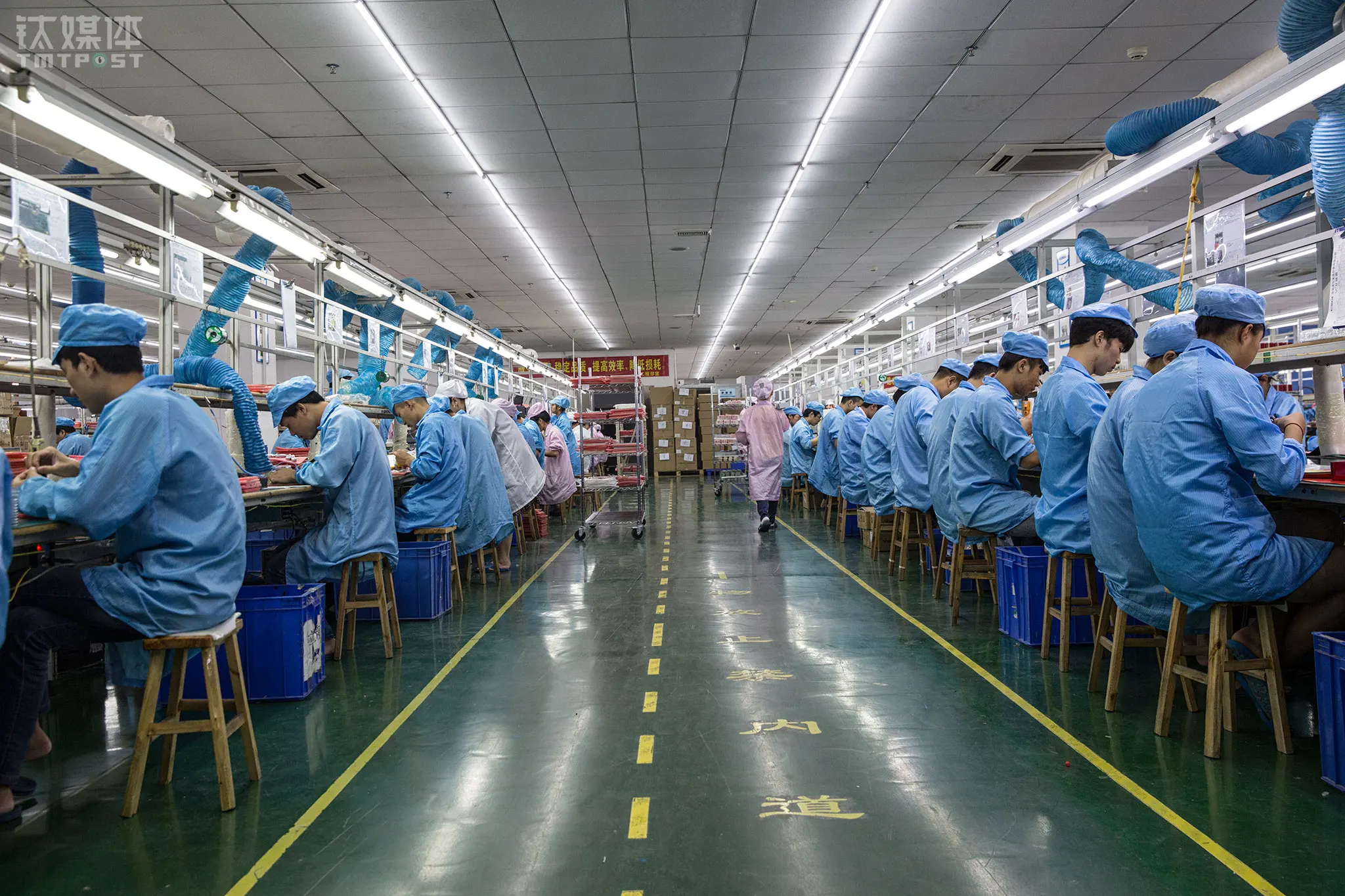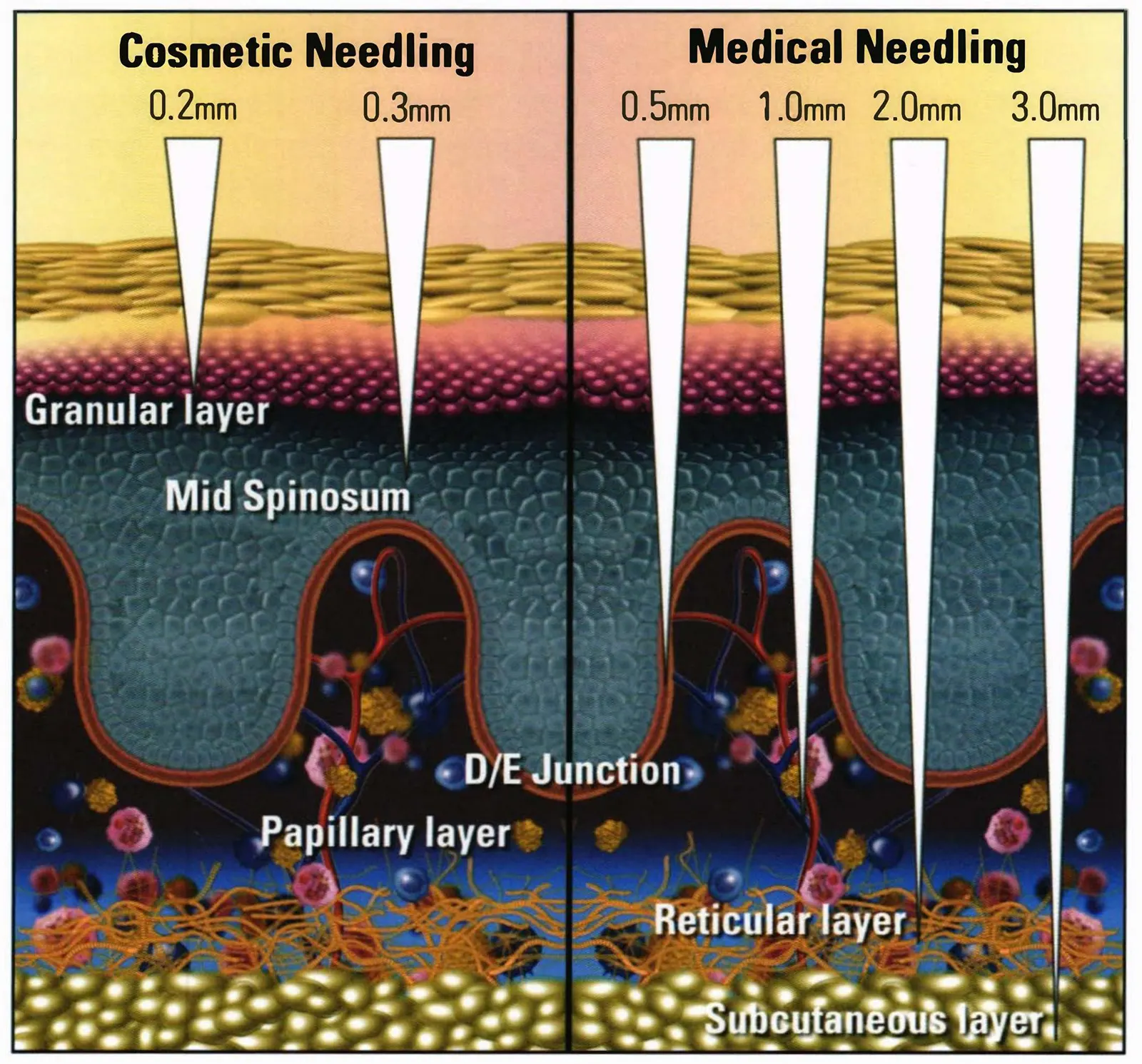Microneedling for hair loss at home is becoming part of people’s hair care regimens. This is because research studies and clinical evidence suggest that microneedling can be an effective and safe treatment option for hair growth.
So, how to do microneedling for hair loss at home? What should you pay attention to before, during, and after use? How should the frequency of use and needle length be selected? Let’s take a look together.
Principle of Microneedling for Hair Loss
Microneedling for hair loss works by stimulation of Dermal papilla (DP) associated stem cells and inducing activation of growth factors. By promoting increased blood flow to the scalp and stimulating the production of growth factors, microneedling can help rejuvenate dormant hair follicles and encourage the growth of new hair strands. Over time, this process can lead to improvements in hair follicle health, increased hair thickness, and enhanced hair growth.
The dermal papilla (DP) is a population of specialized fibroblasts that regulates the growth and activity of various cells in the hair follicle, thereby playing a key role in regulating hair cycle and growth.
What Types of Hair Loss is Microneedling Suitable for?
Microneedling can be a promising treatment for certain types of hair loss, particularly those involving the hair follicles’ ability to regenerate and remain active:
Androgenetic Alopecia (AGA): Also known as male or female pattern baldness, microneedling can be effective for this type of hair loss by stimulating the hair follicles and improving scalp health, potentially increasing hair density.
Alopecia Areata: While more research is needed, some studies suggest microneedling may benefit those with alopecia areata by promoting hair regrowth through the induction of collagen production and increased blood flow to the hair follicles.
Telogen Effluvium: This temporary form of hair loss is due to stress, shock, or a traumatic event. Microneedling might help speed up the recovery process by enhancing nutrient delivery and growth factor production to the affected hair follicles.
Traction Alopecia: For hair loss caused by physical stress on the hair follicles due to tight hairstyles, microneedling might help by relieving scalp tension and promoting healing in the affected areas.
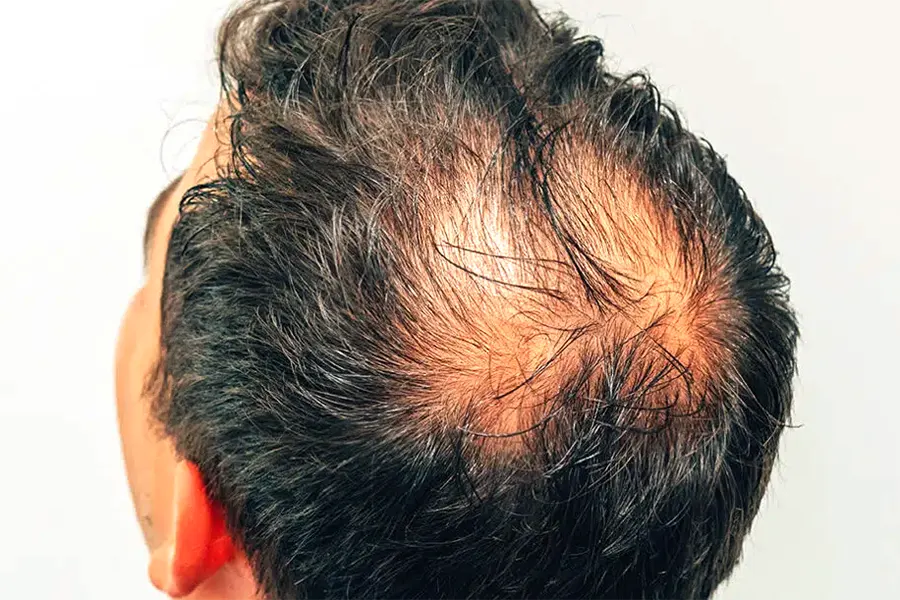
Androgenetic Alopecia (AGA)
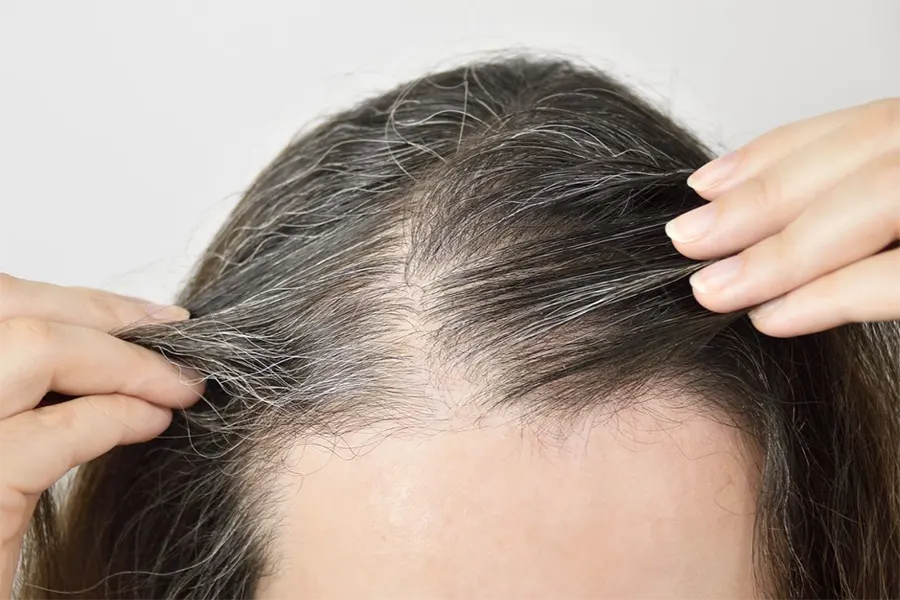
Telogen Effluvium
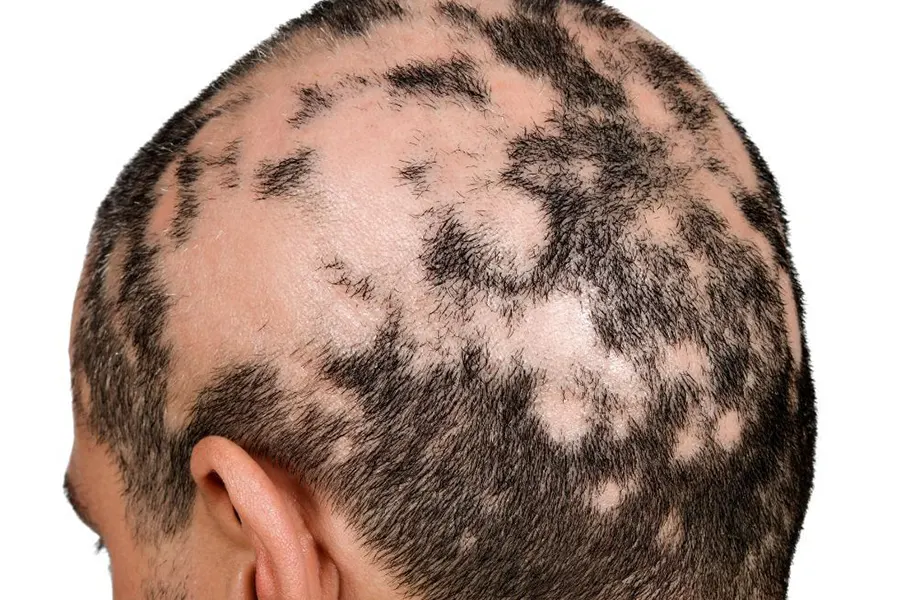
Alopecia Areata
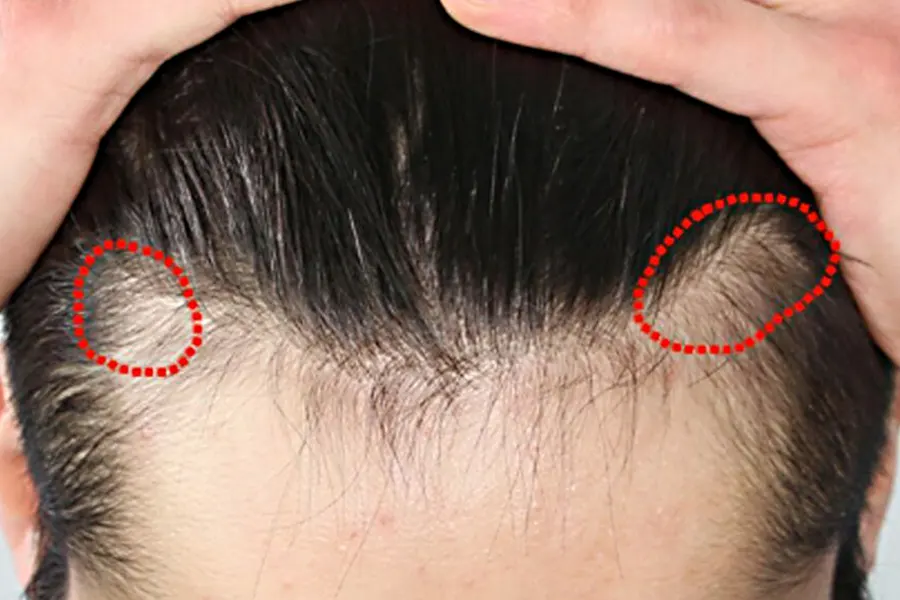
Traction Alopecia
Who Should not Do Microneedling for Hair?
Although microneedling can be beneficial at various ages.However, microneedling is not suitable for every one.
Microneedling may ccause skin redness and even scalp bleeding during treatment, and exuded bodily fluids may come into contact with other areas of the scalp. Therefore it may not be suitable for patients with bleeding disorders or those with symptoms of skin infection.
The following groups of people are best advised to use microneedling with caution to treat hair loss:
- Clotting or bleeding disorders, or who take medicine to thin their blood.
- Eczema or diabetes, or if you have a weakened immune system.
- Active acne, especially inflammatory lesions.
- Active herpes labialis or other localized infection in the treatment area, including warts.
- Moderate-to-severe chronic skin diseases such as eczema or psoriasis.
- Immunosuppressed patients, including patients on chemotherapy.
- Care should also be taken in patients near concomitant chemodenervation (botulinum toxin) injection sites to avoid unwanted toxin diffusion.
Procedure of Microneedling For hair Loss at Home
Before performing microneedling for scalp hair growth, we strongly recommend that you read the following points first, so that you can achieve better results.
Steps for Microneedling Hair
1)Clean Your Scalp
Use a gentle, sulfate-free shampoo to remove any dirt, oil, or styling products. Some people even choose to exfoliate their scalp before microneedling to remove dead skin cells and improve product absorption.
2)Disinfect the microneedling device
Soak the roller or pen or stamp in rubbing alcohol for at least 15 minutes. This helps prevent infections and ensures a sterile environment for the procedure.
3) Expose areas requiring microneedling
Secure the hair around the treatment area so that the hair loss area is exposed. This is especially important for patients who have long hair and use derma rollers. Hair can get tangled in the derma roller.
4) Do microneedling on scalp
Roll the microneedle roller lengthwise, vertically and diagonally onto the treatment area, or use a dermal stamp to gently press onto the scalp until slight redness appears.Applying even, controlled pressure and avoiding excessive force can help minimize discomfort.
Tips for Microneedling Hair Procedure
1) Is it necessary to use local anesthetic cream/anesthetic?
If you once find microneedling uncomfortable, you may choose to apply a topical anesthetic/numbing cream on the scalp before the procedure. Consult with a healthcare professional for recommendations.
2)Does microneedling for hair loss require shaving?
Generally speaking, there is no need to shave your head before microneedling for hair growth. If you are targeting a specific area with thinning hair or bald spots, shaving that particular area might be beneficial for a more precise and direct application of the microneedling treatment. Once you decide to shave your head, please do it 1 to 2 days before microneedling treatment to avoid skin irritation.
3) Will scalp inflammation affect microneedling treatment for hair loss?
If you have any active scalp conditions, such as infections or psoriasis, it’s advisable to postpone microneedling until these conditions have resolved.
4) How long does a microneedling treatment take?
By the way, a typical microneedling session for the scalp may last anywhere from 10 to 20 minutes. This includes the time needed for preparation, microneedling, and any post-treatment care. Pay attention to your comfort level during the procedure. If you experience discomfort or irritation, it’s essential to stop and assess.
5)Is minoxidil necessary?
If necessary,using the dropper, apply the minoxidil to the scalp area where microneedle hair growth treatment has been completed. Minoxidil has been shown to work well with microneedling to treat hair loss. Remember, do not use minoxidil on the day of surgery. It is best to resume use 24 hours after microneedling.
Precautions After Micro-Needling
After microneedling, the scalp may feel sensitive or irritated for a short period, you may experience some temporary redness or warm sensation. This post-procedure sensation is normal and should subside within a day or two.
During this time, the following points need special attention:
- Avoid strenuous exercise or sweating for 24 hours, also avoid indirect heat also (sauna, steam, infrared red) for 48 hours after treatment.
- Make sure sleep on a clean pillow after the treatment to prevent potential infections.
- Make sure to not wash your hair at least 4 hours after treatment.
- Avoid using harsh skincare or shampoo products.
- Avoid sun exposure for 3 days and if possible 2 weeks. A hat can help to protect your scalp when outdoors.
- Do not squeeze, pick or peel the skin should any flaking, peeling or purging occur post treatment. It is impossible to predict if or how much of this will occur as all individuals are different and may not happen at all.
- We recommend avoiding stimulants such as caffeine, alcohol, and spicy foods immediately after treatment. Stay hydrated.
The scalp should generally be fully healed within 2 to 7 days. Complete healing depends on individual skin resilience and the depth of the microneedling treatment.
Usage Time and Frequency
We suggest you use microneedles at night before bedtime. This is because the scalp skin goes through a natural repair and regeneration process during sleep. In addition,applying microneedles at night allows the skin to recover without exposure to environmental factors, such as sunlight and pollution.
If microneedling is done in the morning, it’s crucial to follow up with a hat before going outside. Microneedling can make the scalp skin more sensitive to sunlight, and sunscreen helps protect the treated skin.
For most people, derma rolling once a week is enough to see results.Don’t exceed the recommended frequency, as derma rolling too often can create scar tissue, which may inhibit future hair growth.
Never use a derma roller every day! The scalp needs time to recover. Dr.John Watts once warned, “If they are used daily there are definite chances of causing scalp injuries. This may lead to inflammation and pustules may be formed on the scalp wounds.”
Pay attention to how your scalp responds to derma rolling. If you notice persistent redness, irritation, or discomfort, it may be an indication to reduce the frequency of use.
Best Microneedle Length For Hair Growth
The answer is 0.5 mm to 1.5 mm. From a professional research perspective, for scalp microneedling, 0.5 mm to 1.5 mm are suitable. Within this range, microneedles can effectively stimulate Dermal papilla (DP) associated stem cells and induce activation of growth factors.
But due to differences in scalp thickness between individuals, 0.5 mm is a good starting point for safe at-home scalp microneedling. You can try different lengths to find the microneedle length that works for you. The standard for trying it is that after microneedling treatment, the scalp becomes red but does not bleed. If you see bleeding when trying a certain microneedle length, you’ll want to choose a shorter gauge until you find a length that works for you.
Compared with the derma roller with fixed needle length, the derma stamp with adjustable needle length should be more suitable for home use.
For microneedle hair, we developed 2 derma stamp products at the end of 2023: Bio Needle H24 Derma Stamp and Bio Needle 120 Derma Stamp. They have adjustable needle lengths of 0~1.5mm and 0~2.0mm respectively.
If you want wholesale or customize microneedle products, please feel free to contact us.
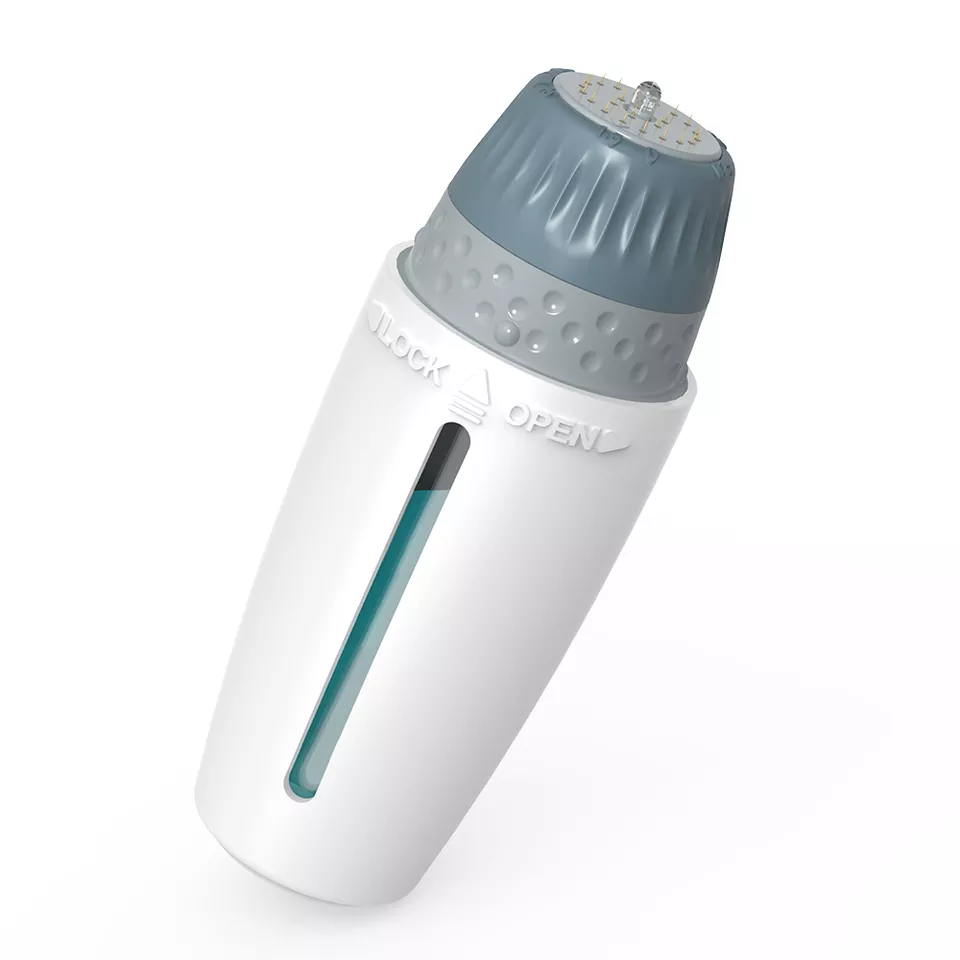
Bio Needle H24
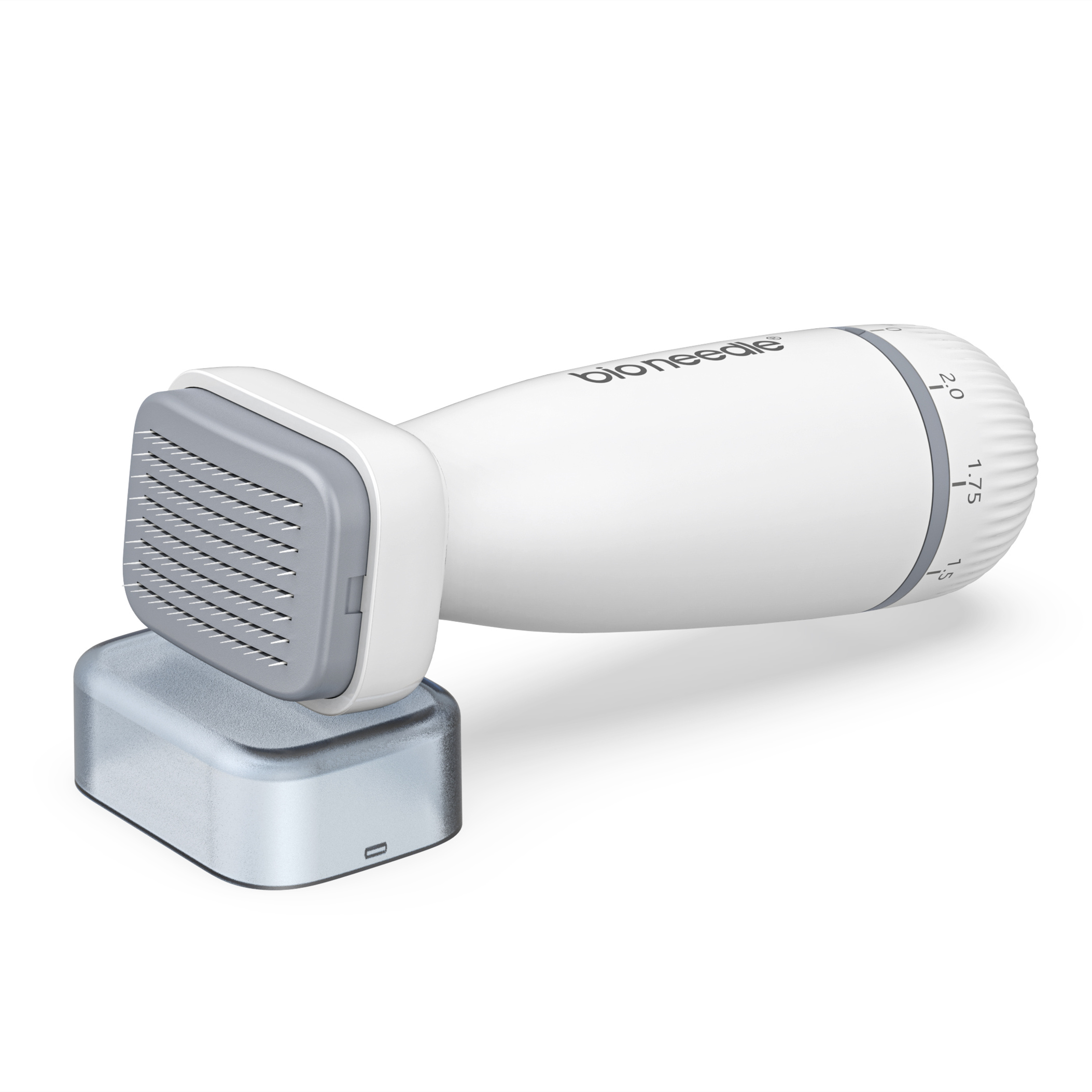
Bio Needle 120
FAQ
Before we wrap up, let’s discuss some of the issues that may often bother you when you do microneedling hair growth treatments at home.
Can I use derma roller on my hairline?
Derma roller can be used on the hairline. Receding hairlines are often associated with various factors, including genetics, hormonal changes, and aging. While derma rolling / derma stamping may contribute to a healthier scalp, its ability to significantly delay or reverse a receding hairline may be limited.
How to use Minoxidil together with derma roller (derma stamp)?
It is recommended to use a topical solution of Minoxidil (as opposed to the oral variety) alongside derma rolling, in order to reap its full benefits. That is because the main mechanism which makes these two therapies more effective when combined is that the pinpoint holes left by micro-needling in the scalp increase topical substance absorption.
However, while therapies with Minoxidil and derma roller can be combined, that does not mean that both treatments should be applied at the same time. Topical Minoxidil should only be used on the scalp 24 hours after the micro-needling session, to avoid adverse side effects, such as scalp irritation.
Can I use rosemary oil after Dermarolling?
Using rosemary oil after derma-rolling is a common practice for some individuals, as rosemary oil is believed to have potential benefits for hair health. If you decide to use rosemary oil, it’s advisable to dilute it with a carrier oil to avoid skin irritation. A common carrier oil is jojoba oil or coconut oil.
Before applying it to a larger area, perform a patch test on a small, inconspicuous area of your skin to ensure you don’t have an adverse reaction.
If you have specific concerns about hair loss or are considering the use of essential oils after derma-rolling, it’s advisable to consult with a dermatologist or healthcare professional.
How many microneedling sessions I shall have for hair growth?
Microneedling sessions for hair growth depend on individual factors such as hair loss severity and scalp response. Initially, sessions are recommended every 1 to 2 weeks, transitioning to every 2 to 4 weeks for maintenance as your scalp adjusts. The key is consistency for optimal results, with some people requiring more treatments over time.
Hair growth is gradual, often taking several months to notice improvements in hair density and scalp health. For personalized advice and to determine the best treatment frequency, consult a dermatologist or healthcare professional.
Is microneedling better than Minoxidil?
Microneedling, when compared to Minoxidil, has shown promising results in promoting hair growth, with clinical trials indicating it to be more effective. Combining microneedling with Minoxidil treatment has been statistically superior in enhancing hair growth in men with androgenetic alopecia (AGA) across all primary measures of efficacy.
Microneedling is recognized as a safe and effective method for stimulating hair growth and treating hair loss that does not respond to Minoxidil therapy alone.
Should you microneedle before or after Minoxidil?
You should microneedle before applying Minoxidil. Microneedling creates tiny punctures in the scalp, enhancing the absorption of topical treatments like Minoxidil. For optimal results and to minimize irritation, apply Minoxidil 20-30 minutes after microneedling. This waiting period allows the micro-pores created by the dermaroller to be ready for the treatment, reducing the risk of scalp irritation.
How often do you microneedle your scalp with minoxidil?
For microneedling with Minoxidil treatment, it’s recommended to use a dermaroller on your scalp once a week and apply Minoxidil twice daily. Maintaining this schedule aligns with most studies on microneedling for hair loss and optimizes your treatment routine.
Wholesale and Customize Derma Rollers
If you are planning to incorporate derma roller into your sales and build your own brand, you must be wondering where to purchase a professional products. Fortunately, ROSEORCHID is just the company to meet your needs.
ROSEORCHID provides wholesale and customization of professional microneedle products for your business. You can purchase all types of microneedling products here, including: derma roller, derma stamp, derma pen, bio needle, hydra needle, derma stamp for hair.
You can choose different needle numbers, needle lengths, materials, uses, colors, logos, packaging and set combinations according to your business. You can also let us help develop products that are right for you.
Just tell us what you need. We have more than 10 years of experience in this area.
Ending
In conclusion, mastering the art of micro-needling for hair growth requires attention to detail and consistency. By adhering to the proper usage time, and preparations, as well as following the correct steps during the procedure and precautions afterward, you can optimize your results and minimize potential risks.
Remember to consider the recommended needle length for your specific needs, and don’t hesitate to reach out for guidance if you’re unsure. At ROSEORCHID, we have been specializing in micro-needling treatment tools, including derma rollers, derma stamps, and derma pens, for many years. If you have any further questions about microneedling use or are interested in exploring our products, we welcome you to contact us. Our team is here to support you on your journey to beauty!

